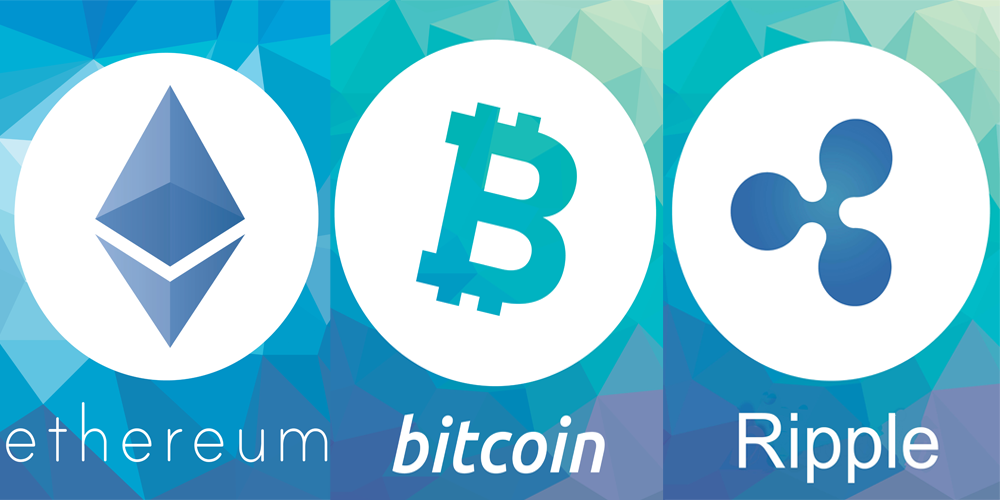Trading bitcoin, lets start doing it right (Part 1)
A brief guide on how o trade bitcoin & other digital currencies the right way

What is cryptocurrency and how cryptocurrencies emerged as a side product of digital cash
Few people know, but cryptocurrencies emerged as a side product of another invention. Satoshi Nakamoto, the unknown inventor of Bitcoin, the first and still most important cryptocurrency, never intended to invent a currency. In his announcement of Bitcoin in late 2008, Satoshi said he developed “A Peer-to-Peer Electronic Cash System.“ His goal was to invent something; many people failed to create before digital cash.
Announcing the first release of Bitcoin, a new electronic cash system that uses a peer-to-peer network to prevent double-spending. It’s completely decentralized with no server or central authority. – Satoshi Nakamoto, 09 January 2009, announcing Bitcoin on SourceForge.
The single most important part of Satoshi‘s invention was that he found a way to build a decentralized digital cash system. In the nineties, there have been many attempts to create digital money, but they all failed.
After seeing all the centralized attempts fail, Satoshi tried to build a digital cash system without a central entity. Like a Peer-to-Peer network for file sharing. This decision became the birth of cryptocurrency.
Cryptocurrency is an encrypted decentralized digital currency transferred between peers and confirmed in a public ledger via a process known as mining. Cryptocurrency is a form of digital money that is designed to be secure and, in many cases, anonymous.

Examples of Cryptocurrencies

Bitcoin
The one and only, the first and most famous cryptocurrency. Bitcoin serves as a digital gold standard in the whole cryptocurrency-industry, is used as a global means of payment and is the de-facto currency of cyber-crime like dark net markets or ransomware.
Ethereum
The brainchild of young crypto-genius Vitalik Buterin has ascended to the second place in the hierarchy of cryptocurrencies. Other than Bitcoin its blockchain does not only validate a set of accounts and balances but of so-called states.
Ripple, Litecoin etc all other coins apart from Bitcoin is called Altcoin/Alternative coins.
What are its characteristics?
Bitcoin has several important features that set it apart from government-backed currencies.
1. It's decentralized
The bitcoin network isn’t controlled by one central authority. Every machine that mines bitcoin and processes transactions makes up a part of the network, and the machines work together. That means that, in theory, one central authority can’t tinker with monetary policy and cause a meltdown – or simply decide to take people’s bitcoins away from them, as the Central European Bank decided to do in Cyprus in early 2013. And if some part of the network goes offline for some reason, the money keeps on flowing.
2. It's easy to set up
Conventional banks make you jump through hoops simply to open a bank account. Setting up merchant accounts for payment is another Kafkaesque task, beset by bureaucracy. However, you can set up a bitcoin address in seconds, no questions asked, and with no fees payable.
3. It's anonymous
Well, kind of. Users can hold multiple bitcoin addresses, and they aren’t linked to names, addresses, or other personally identifying information. However…
4. It's completely transparent
Bitcoin stores details of every single transaction that ever happened in the network in a huge version of a general ledger, called the blockchain. The blockchain tells all.
If you have a publicly used bitcoin address, anyone can tell how many bitcoins are stored at that address. They just don’t know that it’s yours.
There are measures that people can take to make their activities more opaque on the bitcoin network, though, such as not using the same bitcoin addresses consistently, and not transferring lots of bitcoin to a single address.
5. Transaction fees are minuscule
Your bank may charge you a $40 fee for international transfers. With Bitcoin you decide what to pay.
6. It’s fast
You can send money anywhere and it will arrive minutes later, as soon as the bitcoin network processes the payment.
The blockchain is an undeniably ingenious invention – the brainchild of a person or group of people known by the pseudonym, Satoshi Nakamoto. But since then, it has evolved into something greater, and the main question every single person is asking is: What is Blockchain?
By allowing digital information to be distributed but not copied, blockchain technology created the backbone of a new type of internet. Originally devised for the digital currency, Bitcoin, the tech community is now finding other potential uses for the technology.
Bitcoin has been called “digital gold,” and for a good reason. To date, the total value of the currency is close to $65 billion US. And blockchains can make other types of digital value.
What is Blockchain Technology?
“The blockchain is an incorruptible digital ledger of economic transactions that can be programmed to record not just financial transactions but virtually everything of value.”
A network of nodes : A network of so-called computing “nodes” make up the blockchain.
Node
(computer connected to the blockchain network using a client that performs the task of validating and relaying transactions) gets a copy of the blockchain.
What You Should Have Before We Start
Bitcoin Address
Blockchain Addresses are an important concept in cryptocurrencies and blockchains. In the early days of Bitcoin, it was possible to send payments to an IP-address like 104.25.248.333. This was planned to be a convenient method to use Bitcoins without dealing with unhandy public keys and addresses. However, after the Bitcoin developers realized that this way of sending coins could be subject to serious man- in-the-middle-attacks, the option was disabled and did never come back.
After Pay to IP had been abandoned in Bitcoin, P2PKH became the new standard format for Bitcoin addresses. You might know it; it looks like this:
1K31KZXjcochXpRhjH9g5MxFFTHPi2zEXb
A standard P2PKH address has something like 34 signs and starts with a 1. P2PKH is the abbreviation of “Pay To Public Key Hash.” This means that you Pay to a hash of a public key. In a lay man's view the address is just like your bank account number an identifier to recive and send transcations.
Cryptocurrency Wallet
A cryptocurrency wallet is a software program that stores private and public keys and interacts with various blockchain to enable users to send and receive digital currency and monitor their balance. If you want to use Bitcoin or any other cryptocurrency, you will need to have a digital wallet.
How do they work?
Millions of people use cryptocurrency wallets, but there is considerable misunderstanding about how they work. Unlike traditional ‘pocket’ wallets, digital wallets don’t store currency. In fact, currencies don’t get stored in any single location or exist anywhere in any physical form. All that exists are records of transactions stored on the blockchain.
Cryptocurrency wallets are software programs that store your public and private keys and interface with various blockchain so users can monitor their balance, send money and conduct other operations. When a person sends you bitcoins or any other type of digital currency, they are essentially signing off ownership of the coins to your wallet’s address. To be able to spend those coins and unlock the funds, the private key stored in your wallet must match the public address the currency is assigned to. If public and private keys match, the balance in your digital wallet will increase, and the senders will decrease accordingly. There is no actual exchange of real coins. The transaction is signified merely by a transaction record on the blockchain and a change in balance in your cryptocurrency wallet.
....To be continued
www.siftweir.com